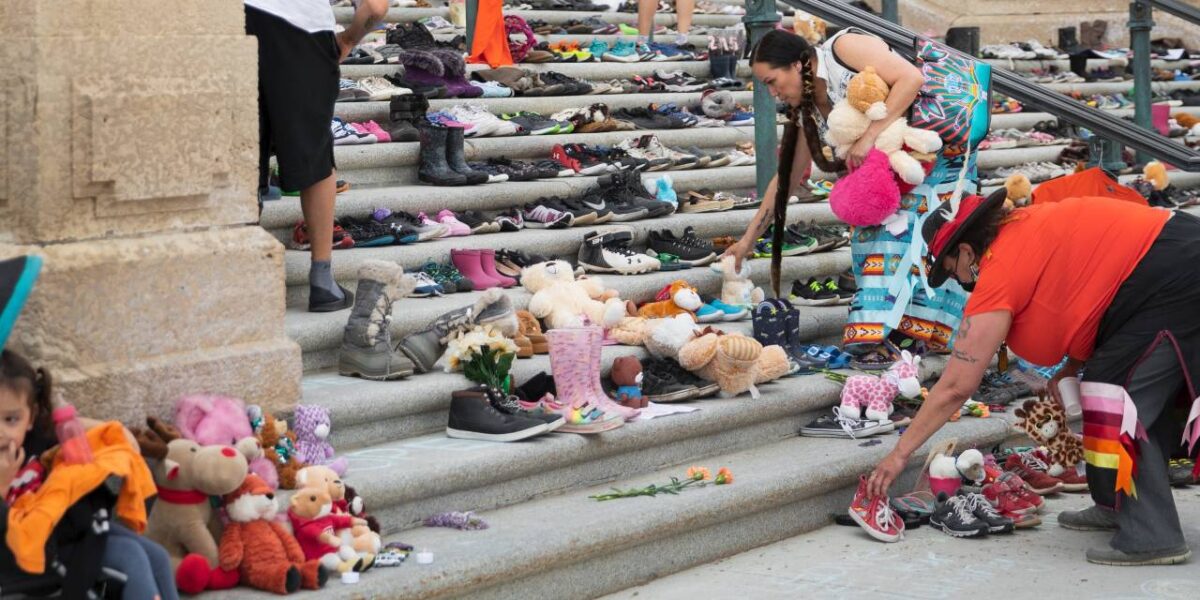Saturday, September 30 is the National Day for Truth and Reconciliation. Created by the federal government in 2021 National Day for Truth and Reconciliation is a day for Canadians to reflect on the history of the Indigenous people living in this country and reconcile with that history so that the crimes of the past might not be repeated.
White settlers came to what is now called Canada and appropriated land from the Indigenous peoples already living here. Those Indigenous peoples where then subjected to the residential school system where Indigenous children experienced horrific child abuse in what was declared in October of 2022 to have been an act of genocide.
Despite moves to recognize the crimes committed against Indigenous peoples in Canada the path towards true reconciliation has been slow and has faced setbacks.
#SearchtheLandfill and slow moving Calls to Action
This past year saw a notable example of a provincial government refusing to engage in an act of reconciliation. The conservative government of Manitoba has refused to search a Winnipeg-area landfill for the bodies of missing Indigenous women who are suspected to be the victims of a serial killer.
READ MORE: National rallies call for Winnipeg landfill to be searched
Premier Heather Stefanson has now gone so far as to make her government’s resistance to searching the landfill a rallying point of her campaign.
Nationally, we are also seeing a slow pace of completion on the 94 Calls to Action issued by the national Truth and Reconciliation Commission.
Since the calls to action were issued in 2015, only about a dozen have been completed. At this pace, all of the calls to action are not expected to be completed until 2065.
READ MORE: Calls to action for truth and reconciliation decades from completion
Carol McBride, president of the Native Women’s Alliance of Canada (NWAC) said she has been frustrated by the slow pace.
“When Prime Minister Justin Trudeau was campaigning back in 2015 he had promised that he was going to push this and accelerate the calls to action and it’s gone the other way,” McBride said in an interview with rabble.ca.
“At the rate that it’s going now it’s gonna take another 43 years before those are completed. That’s unacceptable,” she added.
McBride said that despite this, she remains hopeful.
“It looks like we’re going backwards instead of ahead. But I have hope. Right across the country people are learning more and wanting to know more about Indigenous people,” she said.
A chance for non-Indigenous peoples to learn
McBride explained that National Day for Truth and Reconciliation is not for Indigenous people, but it is for non-Indigenous people to learn about their history and their struggle.
“It’s for the non-Indigenous people so that they can learn more and to see what exactly we’ve been through. We’re very strong, resilient people and we’re still here. And I hope all Canadians appreciate that,” she said.
McBridge hoped that non-Indigenous people would use this day of reflection to learn and quoted Murray Sinclair, who chaired Canada’s National Truth and Reconciliation Commission: “If you know better, you do better.”



